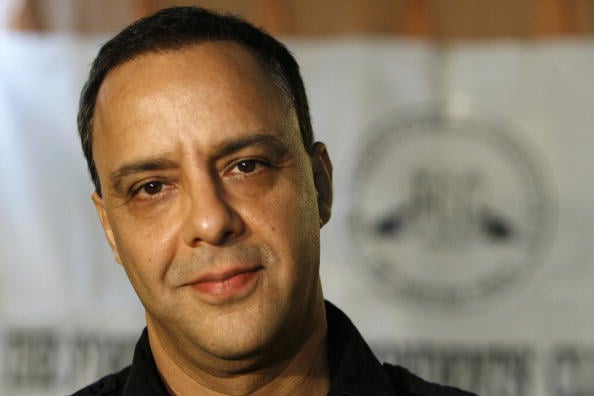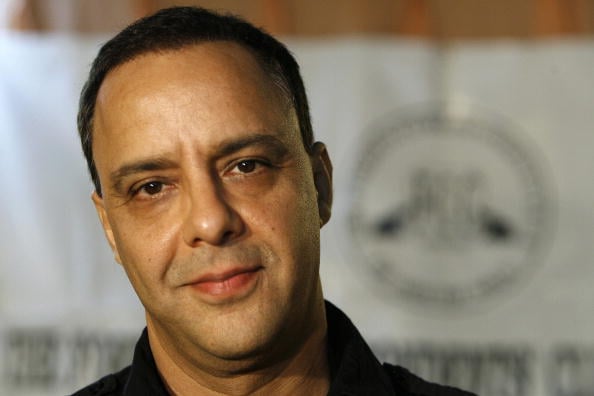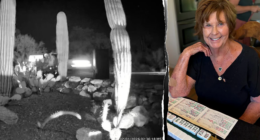Share this @internewscast.com
What is Vidhu Vinod Chopra’s net worth?
Vidhu Vinod Chopra is an Indian film director, producer, and screenwriter who has a net worth of $30 million. Known for his distinctive storytelling style and ability to merge artistic depth with mainstream appeal, Vidhu Vinod Chopra has directed and produced some of Hindi cinema’s most celebrated films. His works include critically acclaimed movies like “Parinda,” “1942: A Love Story,” and “Eklavya,” as well as blockbuster hits such as “Munna Bhai M.B.B.S.,” “Lage Raho Munna Bhai,” “3 Idiots,” and “PK.” He has been praised for bringing innovative narratives to Bollywood, introducing new talent, and building a filmography that balances commercial success with cinematic excellence. Beyond directing, Chopra has been instrumental in reshaping the modern Hindi film industry through his production banner, Vinod Chopra Films, which has nurtured writers and directors who have gone on to become household names. His career stands out for its range, from intimate character-driven dramas to some of the highest-grossing films in Indian history.
Early Life
Vidhu Vinod Chopra was born on September 5, 1952, in Srinagar, Kashmir. Raised in a Kashmiri Pandit family, he grew up in a region celebrated for its beauty but also marked by political unrest. Chopra developed a fascination with cinema early on, particularly influenced by the stories and visuals of Indian and world cinema. After completing his schooling in Srinagar, he moved to Delhi to pursue higher education and later enrolled at the prestigious Film and Television Institute of India (FTII) in Pune. At FTII, Chopra studied film direction and quickly earned a reputation as a promising talent. His student short film “Murder at Monkey Hill” won the National Film Award for Best Short Experimental Film and earned recognition at the Los Angeles International Film Festival, providing an early glimpse of his international potential.
Breakthrough and Early Career
Chopra’s directorial debut came with the 1978 documentary “An Encounter with Faces,” which was nominated for an Academy Award in the Documentary Short Subject category. This rare recognition for an Indian filmmaker put him on the global map. In 1981, he directed his first feature film, “Sazaye Maut,” adapted from his student short. However, it was the 1989 release “Parinda,” a gritty crime drama starring Anil Kapoor, Jackie Shroff, Madhuri Dixit, and Nana Patekar, that firmly established him as a serious director. “Parinda” won multiple Filmfare Awards and is often credited as Bollywood’s first realistic gangster film, breaking away from melodrama with its raw style.
In 1994, Chopra directed “1942: A Love Story,” a period romance set against the backdrop of India’s freedom struggle. The film was notable for its cinematography and the iconic soundtrack composed by R.D. Burman, which became a classic. This period cemented Chopra’s reputation as a director who could create films of both visual splendor and emotional depth.

Getty
Producer and Storyteller
While Chopra proved himself as a director, his greatest influence on Indian cinema arguably came through his role as a producer. Under Vinod Chopra Films, he backed a series of projects that became milestones in Hindi cinema. In the early 2000s, he collaborated with writer-director Rajkumar Hirani, producing the “Munna Bhai” series. “Munna Bhai M.B.B.S.” (2003) and “Lage Raho Munna Bhai” (2006) were massive critical and commercial successes that blended humor, social commentary, and heartwarming storytelling.
Chopra also produced “3 Idiots” (2009), starring Aamir Khan, which became one of the highest-grossing films in Indian history and gained cult status for its satirical take on India’s rigid education system. Later productions included “PK” (2014) and “Sanju” (2018), both of which dominated the box office and reinforced his reputation as a master producer. His ability to identify and nurture talent has been central to these successes, with Hirani emerging as one of the most successful directors in the country under his mentorship.
Hollywood Venture and Later Work
Chopra also attempted to reach beyond Bollywood. In 2015, he directed “Broken Horses,” a Hollywood crime drama starring Anton Yelchin, Vincent D’Onofrio, and Chris Marquette. While the film was not a commercial success, it demonstrated his willingness to experiment with global storytelling. Returning to Indian cinema, he continued producing large-scale films while occasionally directing projects like “Shikara” (2020), a film that revisited his Kashmiri roots by exploring the exodus of Kashmiri Pandits.
Style and Legacy
Vidhu Vinod Chopra’s work is characterized by its emotional depth, technical finesse, and commitment to strong storytelling. He has consistently pushed the boundaries of Hindi cinema, whether through the realism of “Parinda,” the period grandeur of “1942: A Love Story,” or the socially resonant yet entertaining narratives of the “Munna Bhai” films and “3 Idiots.” He is also recognized for his meticulous production standards and for building long-term collaborations with actors, writers, and directors.
His legacy lies not just in the films he directed, but in the ecosystem he created for innovative cinema in India. By balancing commercial viability with meaningful storytelling, Chopra has inspired a generation of filmmakers. His career trajectory, from a Kashmiri boy with a passion for cinema to an internationally recognized filmmaker and producer of record-breaking films, remains one of the most remarkable journeys in Indian cinema.
All net worths are calculated using data drawn from public sources. When provided, we also incorporate private tips and feedback received from the celebrities or their representatives. While we work diligently to ensure that our numbers are as accurate as possible, unless otherwise indicated they are only estimates. We welcome all corrections and feedback using the button below.
(function() {
var _fbq = window._fbq || (window._fbq = []);
if (!_fbq.loaded) {
var fbds = document.createElement(‘script’);
fbds.async = true;
fbds.src=”
var s = document.getElementsByTagName(‘script’)[0];
s.parentNode.insertBefore(fbds, s);
_fbq.loaded = true;
}
_fbq.push([‘addPixelId’, ‘1471602713096627’]);
})();
window._fbq = window._fbq || [];
window._fbq.push([‘track’, ‘PixelInitialized’, {}]);







